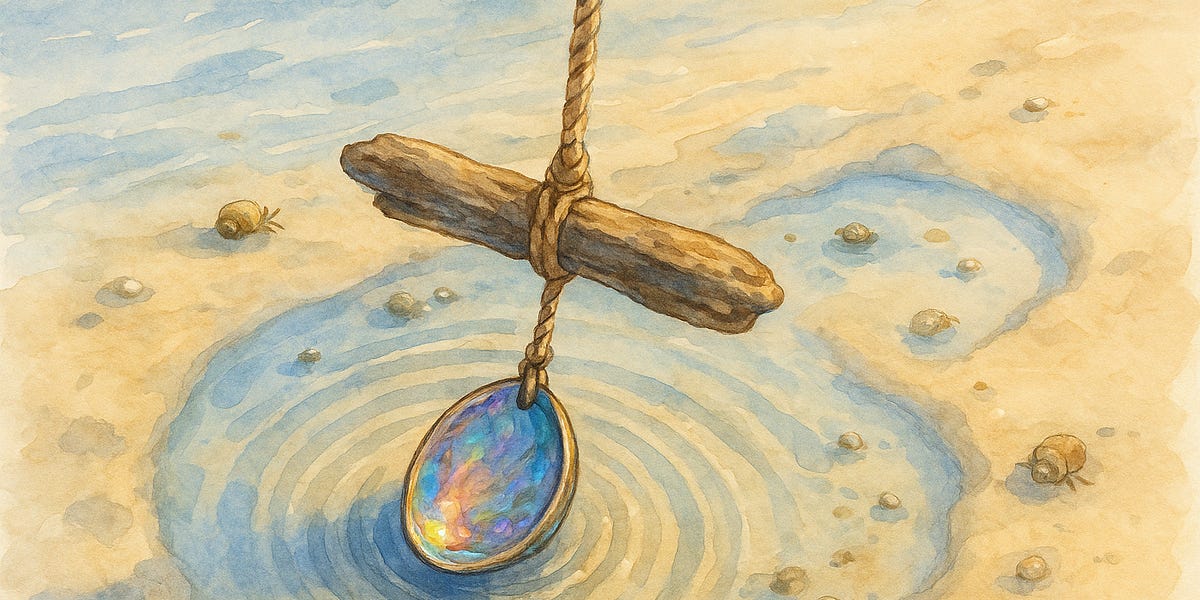✉️ Not subscribed yet? Subscribe to the Newsletter
Future of Coding Weekly 2025/08 Week 4
2025-08-24 22:14
🗃️ Grist: Organize your data, your way 💡 Icepath: a 2D Programming Language 🧑💻 Alpaca 2025: Algorithmic Patterns in the Creative Arts
Share Your Work
🗨️ Alex McLean: 🧑💻 Alpaca 2025: Algorithmic Patterns in the Creative Arts
Alpaca festival and conference on algorithmic patterns in the creative arts
In-person talks+workshops+concerts+algorave in Sheffield, much of which will be streamed online, from 12-14th September 2025
Then continuing as on-line conference into the following weekend, with in-person watch parties/hubs in Barcelona, Berlin, Linz and Sheffield
Features a fair amount of live coding, including a paper from the mysterious 'pastagang'
Full info and line-up/schedule:
🗨️ Scott: 📝 Safe Is What We Call Things Later
Wrote a little followup to the post from last week based on the conversation with Jonathan Frederickson and D. Schmudde: 📝 Safe Is What We Call Things Later
Some Software Engineering Folklore

DevLog Together
🗨️ Ezhik:
Making a little Obsidian plugin that lets you cook small apps right inside of your vault.
I find boilerplate annoying for little experiments, so I got rid of all of it. Each file is a standalone little app that automatically gets built and executed.
Data persistence is also usually a pain, so it's nice to be able to just do it HyperCard style and have changes auto-save right to the file.
🗨️ Kartik Agaram:
I add a feature and add a toggle of state for it. Then I add another feature and add another toggle. Do I really need to handle 4 possible states now, or just 3, i.e. I have an enum in disguise 🥸? I keep making this mistake. Designing things up front is easy, but I find it impossible to reliably avoid mistakes when adding to an existing design.
Thinking Together
🗨️ Christopher Shank: 🎥 My Favourite Games from GMTK Game Jam 2025
The theme of the GMTK Gam Jam was "loops" and there are lots of fun and novel explorations of affordances, interactions, and mechanics that feel applicable to the types of stuff explored here
🎥 My Favourite Games from GMTK Game Jam 2025

🗨️ Ivan Reese:
Anyone have experience with XSLT? The recent kerfuffle about removing it from the html spec and the episode of Igalia Chats about it were both quite interesting to me. A declarative tree-transformation language!? Sounds like the sort of thing you could build a web app engine around ;)
Linking Together
🗨️ Pablo Donato: 🗃️ Grist: Organize your data, your way
Not sure if it was already shared here before, but Grist looks like a good contender in the No Code/Relational Spreadsheet game. It seems to be to Airtable what Zulip is to Slack: an open-source, self-hostable, and more customizable alternative.
Learn about all of Grist's powerful spreadsheet-database product and its many features.

🗨️ Eli:
Ends in what is likely a fun question for these parts:
In the 1970s, you could launch a new language with a paper and a maybe a compiler and/or interpreter. In 2025, you need an integrated product, a narrative, and enough momentum to bootstrap an ecosystem and on top of that a huge corpus of code that can only be created through sustained use. Modern langdev is daunting to say the least.
Where do languages go from here?
- Languages could be shaped by physical and purpose-specific constraints once again. Tomorrow’s interesting languages may target IoT, SBCs, edge devices, Blockchain, GPUs, and let’s not forget that the world still runs on microcontrollers.
- Python is the lingua franca of AI, which means it’s the lingua franca of LLM-generated code. Eventually Python will force LLMs to eat their own tail, but more immediate an over-reliance on AI-generated code will expose inherent weaknesses in the technology. We’re seeing real problems with an increased lack of rigor and there are novel problems that LLMs simply cannot solve. These short-comings are opportunities.
- Future innovations may look more like a new operating environment with integrated semantics across distributed systems, or programmable infrastructure that blurs the line between language and runtime.
🗨️ Jon Tran: Open-source geometric constraint solver
A while back, when I saw the Inkling presentation I said that my company was working on designing a constraint solving system for CAD. It's just getting started and still very much a work in progress, but it's happening. https://github.com/KittyCAD/ezpz
🗨️ Konrad Hinsen: 📝 Google is killing the open web
A statement I frequently hear is that no platform is as stable as the Web platform, because everyone makes an effort to keep old Web sites functional. The current XSLT debate suggests that this stability may soon end, as part of another enshittification campaign.
📝 Google is killing the open web
The juggernaut is taking advantage of its dominant position to enclose and destroy the commons.
🗨️ Jimmy Miller: 💡 Icepath: a 2D Programming Language
https://healeycodes.com/icepath-a-2d-programming-language
A little 2D programming language called Icepath. Named after the ice puzzles in Pokémon Gold and Silver. The vibe I was going for was sliding around a cave and hitting opcodes.
👨🏽💻 By 🐘 @[email protected] 🐦 @warianoguerra
💬 Not a member yet? Check the Future of Coding Community
✉️ Not subscribed yet? Subscribe to the Newsletter / Archive / RSS
🎙️ Prefer podcasts? check the Future of Coding Podcast